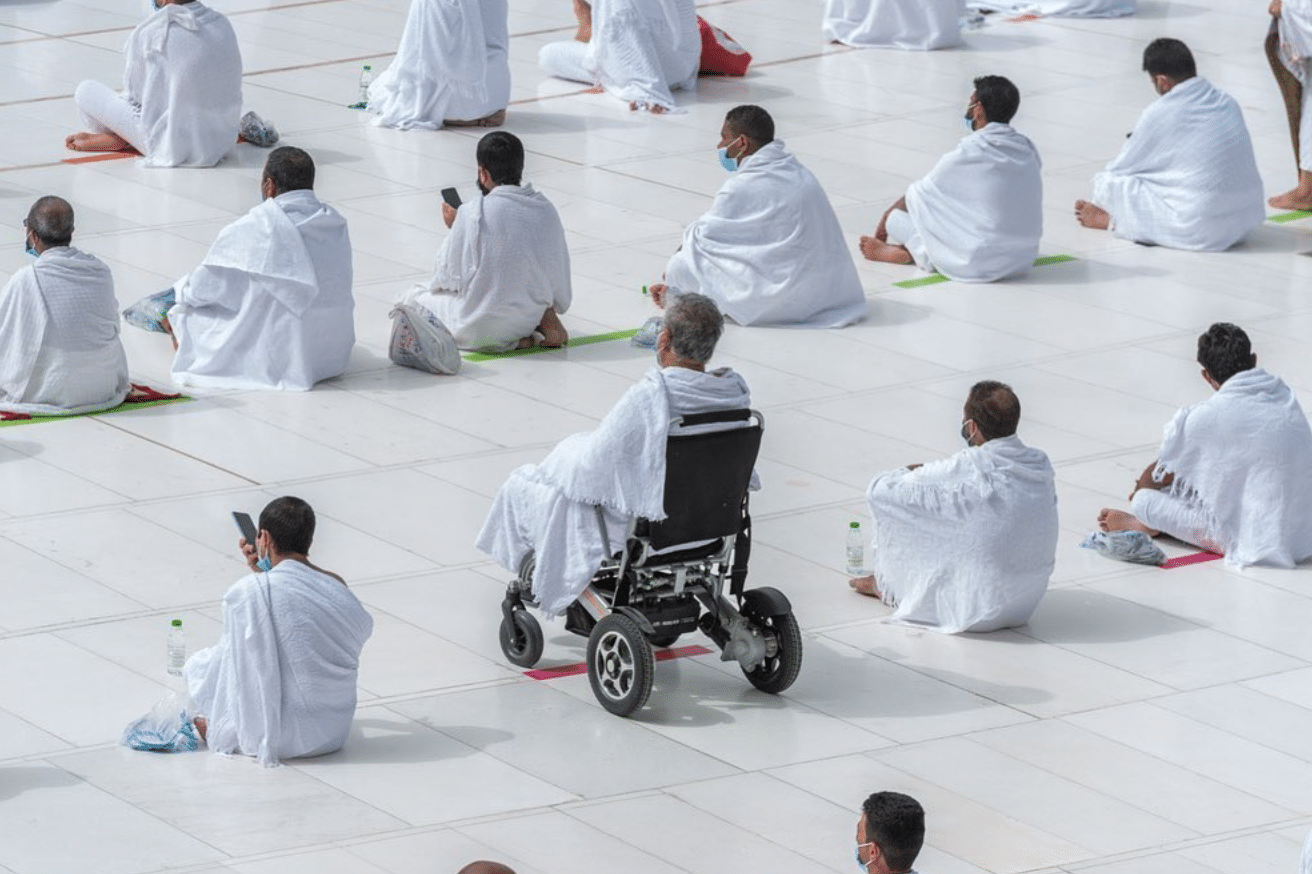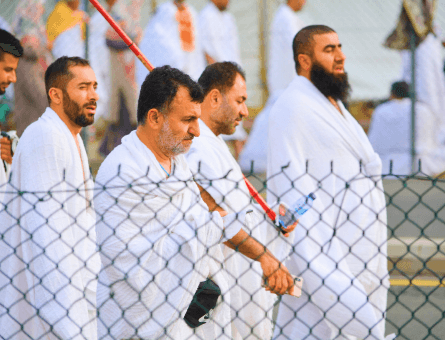What is Kaffarah in Islam?
When translated from Arabic, the word Kaffarah literally means “to compensate for commissioning a sinful act or what is paid to redress an imbalance that is a kind of penalty or punishment.” Though Kaffarah can be paid to make up for several other sins as well, during Ramadan, the act of Kaffarah (expiation) provides an individual with the opportunity to compensate or, in other words, pay the penalty for a deliberately broken or missed fast without a valid reason.
According to the Islamic rules and regulations, if a person misses or breaks a fast intentionally in that case they are required to pay the Kaffarah in either one of the three forms: fast for two consecutive months (60days), free a Muslim locked in the bond of slavery or pay to feed 60 poor people. Read on to learn more about what Is Kaffarah.
Who Is Obligated to Pay Kaffarah?
Kaffarah (expiation) is a form of religious donation that is made by an adult Muslim who makes their fast invalid or skips from fasting during Ramadan without any good reason. The situations in which a person is required to pay Kaffarah are as follows:
- Intentionally drinking or eating during fasting hours.
- Performing masturbation or having sexual intercourse during fasting.
- Intending or planning to miss or skip a fast on purpose.
- Intentionally making yourself throw up (vomit).
- Consciously hurting any other person, animal or even yourself.
Suppose a person is involved in any of the aforementioned situations. In that case, it is an obligation upon them to pay Kaffarah by either fasting for 60 days straight or feeding 60 poor people in the upcoming months or years.
How Much Is Kaffarah in the UK?
In order to atone for a missed/invalidated fast, a Muslim is advised to pay the Kaffarah by fasting continuously for 60 days. However, if one cannot do that, they should compensate for it by feeding 60 poor people. According to the Hanafi school of thought, Kaffarah is due on Muslims once for every Ramadan in which the fasts were invalidated or purposely missed. Therefore, they are advised to pay the amount of Kaffarah altogether rather than for every individual missed fast.
Currently, in the UK, the average cost of two meals is £5 per person. This means that the total amount of Kaffarah per Ramadan would be £300. Similar to fidya, the payment of Kaffarah will be only valid if the person doesn’t gain enough health and strength to fast 60 consecutive days. This means that if the person regains enough health and can fast later in their life, they should compensate for the invalidated fast by fasting rather than paying the amount of Kaffarah. Any religious donation (sadqah or zakat) made in this case with the intention of Kaffarah will automatically be considered charity by Allah SWT.
Kaffarah Calculator – How Much Do I Need to Pay?
The main purpose behind the payment of Kaffarah is to feed a person in need with two fulfilling meals for each of the fasting days missed, without a valid reason. Based on the current statistics, the value of Kaffarah is equivalent to £5 per person for every fast missed or broken. Therefore, if you want to know your exact payment of Kaffarah for a single missed fast, it is £5 x 60 = £300. However, if you have missed/broken more than one fast, calculate the Kaffarah value by this formula: £300 x Number of fasts broken/missed = Kaffarah Amount.
When Do You Need to Pay Kaffarah?
Being an obligatory penalty, Kaffarah can be paid anytime throughout the year if a Muslim has missed fasts during Ramadan without a justified reason. However, if you are planning to pay the Kaffarah by observing fasts, it is highly recommended to make up for the missed fasts in the month of Shawwal.
How Do I Pay Kaffarah?
The prescribed rules and regulations to pay Kaffarah because of violating Ramadan fasting come in three forms in an obligatory hierarchy. This means that a person is strictly forbidden to choose between the three prescribed penalties of Kaffarah. It is recommended that one perform the first mandated form of Kaffarah – fasting for 60 days continuously. However, only in case of unavailability or lack of means such as health issues, should they move to the second prescribed form of Kaffarah that is either feeding 60 poor people per missed fast or feeding one person two meals for 60 days. If one cannot perform the second form of Kaffarah either then they are allowed to move to the third and final form of Kaffarah that is freeing a slave.
Every Muslim must comply with either one of the three forms with a pure heart and intention to fulfil their Kaffarah for violating a fast during Ramadan.
Why Must Kaffarah Be Paid?
This is a simple answer because we were guided to it by our beloved Prophet Muhammad (PBUH). Being Muslims, we are told to live a sin-free life, and so in case one makes a mistake or is disobedient, it is their duty to atone for the sin by asking Allah SWT for forgiveness. Another reason is that Kaffarah reminds us that this life is temporary, and we have a duty of submission and obedience towards Allah SWT. The religious donation (sadqah) reminds us to help those in need and be grateful to Allah SWT for all the blessings of life.
Kaffarah Hadith
Even the Holy Quran maintains that if an adult Muslim of sound mind knowingly breaks a fast during Ramadan without any sanctioned cause, they have committed a kabirah (sin) and exposed themselves to torment and divine displeasure in this life and in the hereafter.
According to a narration by Abu Huraira: A person came to our master the Prophet Muhammad (PBUH) and said, “O the Messenger of Allah, I am ruined.” Our master, the Prophet (PBUH), asked what happened. He said that he had broken the Ramadan fast intentionally. Our master, the Prophet (PBUH) told him to free a slave. When he said that he had no slave, he ordered him to fast for two months incessantly. When he said that he was unable to do so, he told him to feed poor people.”
In an event, Prophet Muhammad (PBUH) said that he was shown the hereafter in which “People hung [upside down] by their Achilles tendons, the corners of their mouths rent and dripping blood. I asked: Who are they? It was said: ‘Such are the ones who used to break the fast before its permissible time.’” (Nasa’i)
What Is the Difference between Kaffarah and Fidya?
The Shari’ah difference between fidya (redemption payment) and Kaffarah (expiation) is that the fidya is a fee paid by the person who has a valid excuse to miss a fast (not to fast during Ramadan). On the other hand, Kaffarah is a form of penance or penalty instituted to compensate for every illegitimate or unauthorized act done to violate fasting during Ramadan.
What Is the Kaffara for Breaking Fast Due to Illness?
In case of sickness one is only allowed to break a fast in two conditions: if fasting will make their sickness worse, or recovery will be delayed due to fasting. In case of temporary illness, it is advised to compensate for the missed or broken fast by paying the Kaffarah as soon as you gain health; that is, by observing fasts for 60 days. However, in case of prolonged sickness, one can also atone by paying the Kaffarah and feeding 60 poor people.
Summary – Kaffarah
Being an obligatory religious donation-zakat or sadqah- Kaffarah is paid to help those in need. The payment of Kaffarah is compensation for every Muslim who intentionally breaks or misses fasting during the holy month of Ramadan. According to the Islamic teachings and traditions, to atone for their missed/broken fast, a person should pay the Kaffarah by fasting consecutively for 60 days or providing a poor person with two meals (food) a day for two months, or by freeing a slave.
Through His Names
New course with
Ustadh Shabbir Hassan












